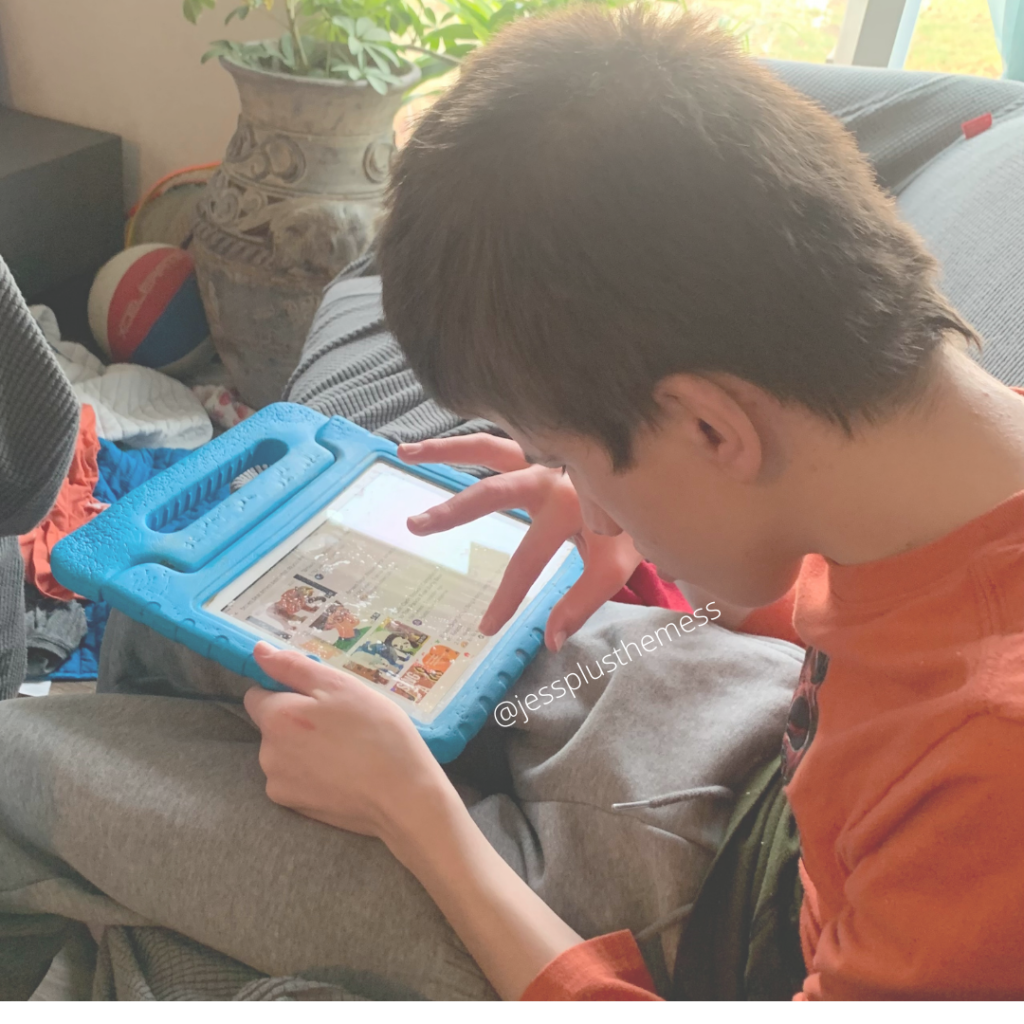A few weeks ago I was quoted in an article about how school closures have affected my family, especially in regards to my son with special needs who can not learn virtually. Read the article here. This quote led to a feature on Fox News where I very quickly had to share my thoughts. Admittedly, I had so much more to say, but I did what I could with my 3 minute segment. Since airing, I’ve had many of you reach out, sharing the same frustrations & stories about how your special ed son or daughter isn’t receiving an education when schools shut down because they simply won’t learn virtually or can’t learn virtually. When our family went into lock down in March of 2020, it was literally hell for months. Luke went to school one day & then never returned & this disruption to his schedule caused constant screaming, aggression, regression and pacing back & forth as he repeatedly asked “go to school?”

My husband & I tallied & came to the conclusion that Luke had, at a minimum, 7 people working with him on a daily basis at school. Seven people with specific certifications & degrees such as physical therapy, speech therapy or behavioral specialist – all specialties we weren’t certified in & somehow, the two of us who had full time jobs & 7 other children were supposed to fulfill the roles of all these people it took to educate Luke in one day.
Needless to say, we didn’t. We did our best. We worked on his life skills. We practiced his flash cards. We went to the park & walked but there was absolutely no way we could adequately fulfill his IEP when at school it took a minimum of 7 people a day to work with him.
I’m not sure how exactly I became the face of this problem (or if I even want to be the face!) but here we are & I’ve had numerous people ask, “I get it Jess, it’s awful! But what’s the solution?” And, I’m just a mom. I’m not privy to school budgets or politics or employee recruitment practices, but I do have a few thoughts on the matter & maybe even potential solutions including the following:
1. Pull aids, teachers & subs from other schools & classrooms. My typical children are capable of learning virtually unlike my son with special needs who requires face to face opportunities. Not entirely ideal but a possible solution if we pulled teachers, aids & subs from these classrooms to help out in special Ed classrooms when there are shortages due to Covid or staffing issues.
2. Pay more! And way more for aids willing to work in Special Ed. Offer bonus money to subs who work a certain number of days. My 16 year old daughter receives a $500 bonus after she works for 6 months in retail. Every business is offering this! Why aren’t schools? And, aids who work in Special Ed classrooms must be compensated accordingly & this is not minimum wage. This job requires so much more than that of a typical classroom & often times includes specialized training. I can’t find respite workers for less than $15 an hour & aids (or subs) who work in these classrooms should also be paid at least this amount.
3. Let parents decide regarding contact tracing & virtual. Some children are medically fragile or immune compromised, and if this was the case for my child, I would absolutely be more concerned during cold, flu and Covid season, but he’s not and there is an extremely low chance that he would ever have complications or die from the flu or Covid; however, there is a very high chance that he (and we) might have a mental breakdown & financial hardships if he doesn’t attend in person schooling because we can’t work. Mental health trumps physical health in our situation, but this could very easily be different for another family. Choice is a good thing. Let parents choose.
4. Offer a stipend to homeschool. Some states offer this & it’s not much but at least it’s a viable choice. When we lived in Tennessee, we were offered around $900 a month if we chose to homeschool Luke. This isn’t much but at least it gives parents a little bit of autonomy over the situation, & if the parent is expected to set aside their whole life to educate their son or daughter for an extended amount of time, they should be compensated. Or, perhaps a group of parents could pool their money together and start a special Ed co-op. Normally, we have numerous options when it comes to schooling for our typical children, and we should have a few for our special ed students as well.
Again, I don’t claim to understand the inner workings of each and every school district but these might be viable & attainable solutions for a problem that doesn’t seem to be going away any time soon. Any other thoughts?
Just keep livin.


